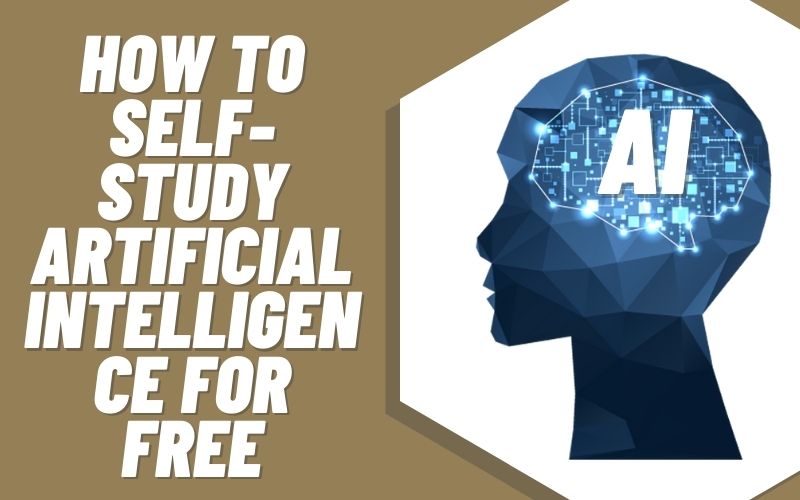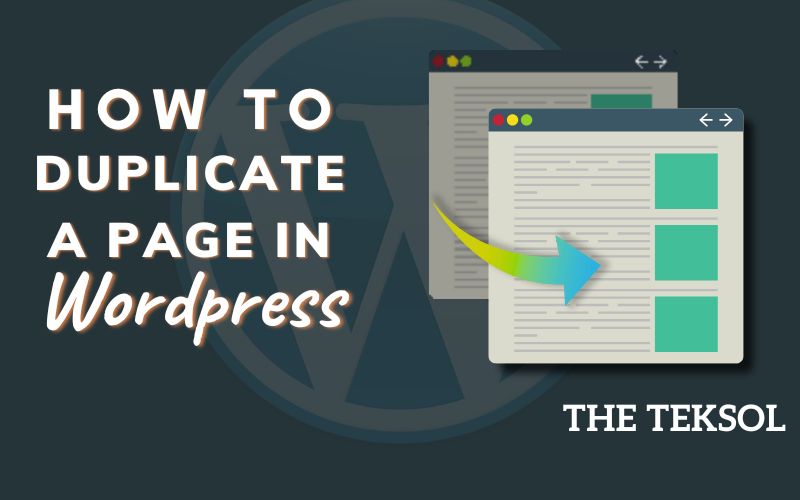Artificial intelligence (AI) is one of the most exciting and rapidly evolving fields of technology today. AI has the potential to transform various aspects of our lives, such as health, education, entertainment, and business. However, learning AI can be challenging, especially if you do not have access to formal education or guidance. How to self-study Artificial Intelligence free and become proficient in this domain?
In this blog post, we will share some tips and resources that can help you learn AI on your own. We will cover the following topics:
| • Why self-study Artificial intelligence? • What are the prerequisites for learning AI? • What are the best online courses and books for learning AI? • How to practice and apply your AI skills? • How to stay updated and motivated in your AI journey? |
Read More From The Teksol: youtube shorts monetization requirements
Why Self-Study AI?
There are many reasons why you might want and how to self-study Artificial intelligence free. Here are some of them:
- You are curious and passionate about AI and want to explore its possibilities and applications.
- Enhance your career prospects and skills by adding AI to your resume.
- Solve real-world problems and create innovative solutions using AI.
- Join the AI community and network with other learners and experts.
Whatever your motivation is, self-studying Artificial intelligence can be rewarding and fulfilling. However, it also requires dedication, discipline, and perseverance. You need to set realistic goals, plan your learning path, and follow it consistently.
What are the Prerequisites for Learning AI?
Before you dive into learning AI, you need to have some background knowledge and skills. Here are some of the prerequisites for learning AI:
1. Mathematics
You need to have a solid understanding of basic mathematics, such as algebra, calculus, statistics, and probability. These are essential for understanding the concepts and algorithms of AI.
2. Programming
You should have some programming experience, preferably in Python, which is the most popular language for AI. You should be familiar with the syntax, data structures, control flow, and functions of Python. Also You should also learn how to use libraries and frameworks, such as NumPy, Pandas, Matplotlib, Scikit-learn, TensorFlow, and PyTorch, which are widely used for AI development.
2. Domain Knowledge
You need to have some domain knowledge, depending on the area of AI that you want to focus on. For example, if you want to learn natural language processing (NLP), you should know some linguistics and grammar. If you want to learn computer vision, you should know some image processing and geometry.
Of course, you do not need to master all these prerequisites before you start learning AI. You can learn them along the way, as you encounter new challenges and problems. However, having a strong foundation will make your learning process easier and faster.
What are the Best Online Courses and Books for Learning AI?
There are many online courses and books that can help you learn AI. However, not all of them are suitable for self-study. Some of them may be too advanced, too theoretical, or too expensive. Here are some of the best online courses and books that we recommend for how to self-study Artificial Intelligence free:
#1- Online Courses
- AI For Everyone: This is a beginner-friendly course that introduces the basics and applications of AI. It is taught by Andrew Ng, one of the leading experts and educators in AI. You will learn what AI is, how it works, and how it can benefit various industries and domains. You will also learn how to build a basic AI project and how to collaborate with AI teams.
- Elements of AI: This is a free and interactive course that covers the fundamentals and concepts of AI. It is designed by the University of Helsinki and Reaktor, a technology company. You will learn what AI is, how it is different from human intelligence, and how it can be applied to various problems. You will also learn how to use logic, search, and machine learning to create AI solutions.
- Machine Learning: This is a comprehensive and in-depth course that covers the theory and practice of machine learning, which is the core of AI. It is also taught by Andrew Ng, who explains the concepts and algorithms of machine learning in a clear and intuitive way. You will learn how to use supervised, unsupervised, and reinforcement learning to build and evaluate AI models. You will also learn how to use neural networks, support vector machines, decision trees, and other techniques to solve various problems.
#2- Books
- Artificial Intelligence: A Modern Approach: This is a classic and authoritative book that covers the breadth and depth of AI. It is written by Stuart Russell and Peter Norvig, two renowned researchers and professors in AI. You will learn the history, principles, and methods of AI, as well as the current and future challenges and opportunities. You will also learn how to use search, logic, planning, knowledge representation, reasoning, learning, natural language processing, computer vision, robotics, and other topics to create AI systems.
- Hands-on Machine Learning with Scikit-Learn, Keras, and TensorFlow: This is a practical and hands-on book that teaches you how to use machine learning to build and deploy AI applications. It is written by Aurélien Géron, a former Google engineer and AI trainer. You will learn how to use Scikit-learn, Keras, and TensorFlow, which are popular and powerful tools for machine learning. You will also learn how to use linear regression, logistic regression, k-nearest neighbors, support vector machines, decision trees, random forests, neural networks, convolutional neural networks, recurrent neural networks, and other techniques to solve various problems.
- Python Machine Learning: This is another practical and hands-on book that teaches you how to use machine learning and deep learning to build and deploy AI applications. It is written by Sebastian Raschka and Vahid Mirjalili, two experienced and passionate AI educators and researchers. You will learn how to use Python, NumPy, Pandas, Matplotlib, Scikit-learn, TensorFlow, and PyTorch, which are essential tools for AI development. You will also learn how to use supervised, unsupervised, and reinforcement learning, as well as neural networks, natural language processing, computer vision, and generative adversarial networks, to solve various problems.
These are some of the best online courses and books that we recommend for how to self-study Artificial intelligence free. However, you should not limit yourself to these resources. You should also explore other sources of information and knowledge, such as blogs, podcasts, videos, forums, newsletters, and social media. You should also keep an open mind and be willing to learn from different perspectives and experiences.
How to Practice and Apply Your AI Skills?
Learning AI is not only about consuming information and knowledge. It is also about producing and applying your skills and creativity. You need to practice and apply what you learn to real-world problems and projects. Here are some tips and suggestions on how to practice and apply your AI skills:
1- Do Exercises and Assignments
Most of the online courses and books that we mentioned above provide exercises and assignments that can help you test and reinforce your understanding of the concepts and algorithms of AI. You should try to do these exercises and assignments as much as possible, and compare your solutions with the provided answers or feedback. You should also try to challenge yourself by modifying or extending the problems or solutions, and see how your results change.
2- Work on Projects
One of the best ways to practice and apply your AI skills is to work on projects that interest you and that can solve real-world problems. You can either create your own projects or join existing ones. Also you can find many project ideas and datasets on websites such as Kaggle, DrivenData, DataCamp, and GitHub. You can also showcase your projects on platforms such as Medium, Devpost, and YouTube.
3- Participate in Competitions
Another way to practice and apply your AI skills is to participate in competitions that challenge you to solve complex and novel problems using AI. You can find many competitions on websites such as Kaggle, DrivenData, AIcrowd, and CodaLab. You can also learn from the solutions and feedback of other participants and experts.
4- Collaborate with Others
Learning AI can be more fun and effective if you collaborate with others who share your passion and goals. You can join online communities and groups that can help you learn, network, and collaborate with other AI enthusiasts and professionals. Find many communities and groups on platforms such as Coursera, Udacity, LinkedIn, Reddit, and Meetup. You can also contribute to open-source AI projects on GitHub and participate in hackathons and meetups in your local area. Stay Updated and Motivated in Your AI Journey.
The field of artificial intelligence is dynamic and ever-evolving, with new advancements and breakthroughs happening regularly. To stay relevant and motivated in your AI journey, it’s crucial to stay updated on the latest trends, research, and technologies. Here are some strategies to help you stay informed and motivated:
- Follow AI Research Conferences: Keep an eye on major AI conferences such as NeurIPS, ICML, CVPR, and ICLR. These conferences showcase cutting-edge research, and you can find papers and presentations on the latest AI techniques and developments.
- Read Research Papers: Dive into academic papers to understand the details of groundbreaking research. Websites like arXiv and Google Scholar are valuable resources where researchers often share their work. While some papers may be complex, they provide insights into the forefront of AI.
- Subscribe to Newsletters: Subscribe to newsletters from reputable sources in the AI community. This could include newsletters from AI research labs, industry experts, or AI-focused publications. Staying informed through newsletters can give you regular updates in a digestible format.
- Engage in Online Forums: Join online forums and communities dedicated to AI discussions. Platforms like Reddit (r/MachineLearning), Stack Overflow, and specialized AI forums allow you to ask questions, share knowledge, and stay connected with the AI community.
- Participate in Webinars and Meetups: Attend webinars, virtual meetups, and events organized by AI communities. These events often feature experts sharing their experiences, discussing new developments, and providing insights. Virtual events also enable you to connect with professionals worldwide.
- Set Regular Learning Goals: Break down your AI learning journey into manageable goals. Whether it’s mastering a specific algorithm, completing a project, or staying updated on recent publications, setting achievable goals helps maintain focus and motivation.
- Build a Portfolio: Document your AI projects and achievements in a portfolio. This not only serves as a personal showcase but also helps you track your progress. Share your portfolio on platforms like GitHub, showcasing your code and projects to potential employers and collaborators.
- Celebrate Milestones: Acknowledge and celebrate your achievements along the way. Completing a challenging project, mastering a new skill, or contributing to a community are milestones worth recognizing. Positive reinforcement fuels continued motivation.
- Connect with Mentors: Seek guidance from experienced professionals in the field. Connecting with mentors provides valuable insights, advice, and a supportive network. Online platforms, industry events, and professional networks are avenues to find mentors.
- Embrace Lifelong Learning: Understand that AI is a rapidly evolving field, and continuous learning is essential. Be open to exploring new areas, technologies, and methodologies. Embrace the mindset of lifelong learning to adapt to the dynamic nature of AI.
By incorporating these strategies into your self-study routine, you can not only stay updated in the dynamic field of artificial intelligence but also remain motivated and engaged throughout your learning journey. Remember that the key to success how to self-study Artificial Intelligence free lies in consistency, curiosity, and a passion for exploring the limitless possibilities of artificial intelligence. Good luck on your AI learning adventure!




One Comment